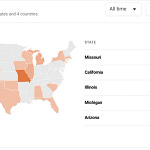This episode is taken from last week’s dispatch from The Embassy - Two Steps Forward. Here is an excerpt …
View
There is a principle that those within the Christian church have claimed for centuries: In essentials, unity. In non-essentials, liberty. In all things, charity. There are essentials, but there aren’t very many of them. In Christianity, maybe ten, maybe a dozen - not more. Even the reformation creeds, generally much longer, are broken into a similar number of chapters. The Westminster Confession of Faith - the preeminent protestant creed in the English language, is broken into nine sections, normally. (The WCF is long on paper, because most every page is more than half covered by the scriptural footnotes.) When we create dozens or hundreds of qualifying points of orthodoxy, the result is shrinking and dividing … and, to the point I hope to make soon, withdrawing. We withdraw deeper into our own shrinking groups, and we grow farther away from everyone else.
In essentials, unity. In non-essentials, liberty. In all things, charity.
In fact, the trend in our culture is that growing farther and farther away from the “bad” people is good and that has become a baseline assumption for many in the church - even a baseline marker of virtue. This is wrong on two fronts. First in the drawing of these circles of condemnation in the first place, and second in moving away from those within them. The movement relationally the bible is most interested in is in the other direction. This trend of the drawing of these circles and moving away from is a misunderstanding, but it has a long history in our culture, and across many cultures - it appears to be a common human instinct. Of course, biblical religion - really almost all religion - seeks often to redirect some of these common instincts. An example of such a redirection is found in Paul’s first letter to the church in Corinth, alongside a longer explanation of what movement in the opposite direction might look like.
… read the whole piece here.














Share this post